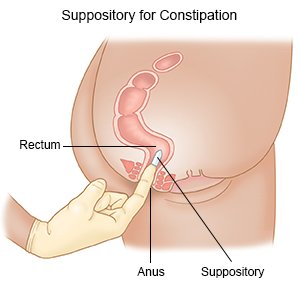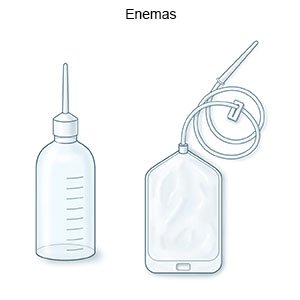Encopresis
Medically reviewed by Drugs.com. Last updated on Oct 29, 2024.
AMBULATORY CARE:
Encopresis,
or soiling, means your child has trouble controlling bowel movements. He or she may have a bowel movement in his or her clothes, or in bed at night. Your child may have these bowel movements on purpose, or he or she may have no control over when it happens. Encopresis develops in children who have already been toilet trained, usually between 5 and 12 years of age. Your child may have primary or secondary encopresis. Primary means your child was never fully toilet trained for bowel movements. Secondary means your child was toilet trained and suddenly starts having soiling episodes.
Seek care immediately if:
- Your child has severe abdominal pain.
- Your child is bleeding from his or her anus, or you see blood in a bowel movement.
Contact your child's healthcare provider if:
- Your child is vomiting.
- Your child has a fever.
- You have questions or concerns about your child's condition or care.
Treatment:
The cause of your child's encopresis will be treated, if possible. Medicines may help your child have a bowel movement and then manage bowel movements over time, if needed. The kind of medicine your child may need will depend on what is causing his or her encopresis. The following may help treat or control symptoms, and prevent episodes from happening again:
- Disimpaction is used to remove bowel movement from your child's rectum. Your child may be given medicine to swallow, or medicine may be inserted into his or her rectum. These medicines will make him or her have a bowel movement.
- Stool softeners may be used to help soften your child's bowel movements. This may make them easier to pass. Your child may take this medicine as a pill or liquid, or as a suppository placed in his or her rectum.

- Laxatives can help stimulate your child's bowels to have a bowel movement. Your child will only take laxatives for a short time. Long-term use may make his or her bowels dependent on the medicine.
- An enema is liquid medicine used to clear bowel movement from your child's rectum. The medicine is put into your child's rectum through his or her anus.

- Behavior treatment includes working with a therapist to help your child manage stress or other problems causing encopresis.
- Biofeedback training may help your child control the muscles used during bowel movements.
Help your child manage encopresis:
- Offer your child foods high in fiber. Fiber will help your child have regular bowel movements. High-fiber foods include fruits, vegetables, whole-grain breads and cereals, and cooked beans. Your healthcare provider can help you create a high-fiber meal plan for your child.

- Have your child drink more liquid. Liquid can help your child have bowel movements more easily. Liquids also help prevent constipation. Ask your child's healthcare provider how much liquid your child needs each day and which liquids are best. You may need to limit the amount of milk your child drinks if milk is causing constipation.
- Be patient. You may feel frustrated, but it is important to stay calm when your child has an episode. Do not focus on the episode or punish your child for it. Stress or fear of punishment may make the problem worse. Your child may respond to positive feedback about not having episodes.
- Make sure your child's caregivers are consistent. Every person who cares for your child needs to have the same rules and reactions. Explain to family, friends, babysitters, and daycare providers that your child is working on controlling bowel movements. Ask each person to stay calm, be patient, and not to punish your child. Ask caregivers to tell you about episodes your child has.
- Keep a record of your child's bowel movements. Record when the bowel movement happens, and how much your child passed. Also record any episodes your child has. Include information about how the person caring for your child responded to your child, if possible. Bring the record with you to follow-up visits with your child's healthcare providers.
- Do not be discouraged if your child has a relapse. Your child may have episodes again after a long period of no episodes. This is normal and should get better with time.
Follow up with your child's doctor as directed:
Write down your questions so you remember to ask them during your child's visits.
© Copyright Merative 2024 Information is for End User's use only and may not be sold, redistributed or otherwise used for commercial purposes.
The above information is an educational aid only. It is not intended as medical advice for individual conditions or treatments. Talk to your doctor, nurse or pharmacist before following any medical regimen to see if it is safe and effective for you.
Further information
Always consult your healthcare provider to ensure the information displayed on this page applies to your personal circumstances.
